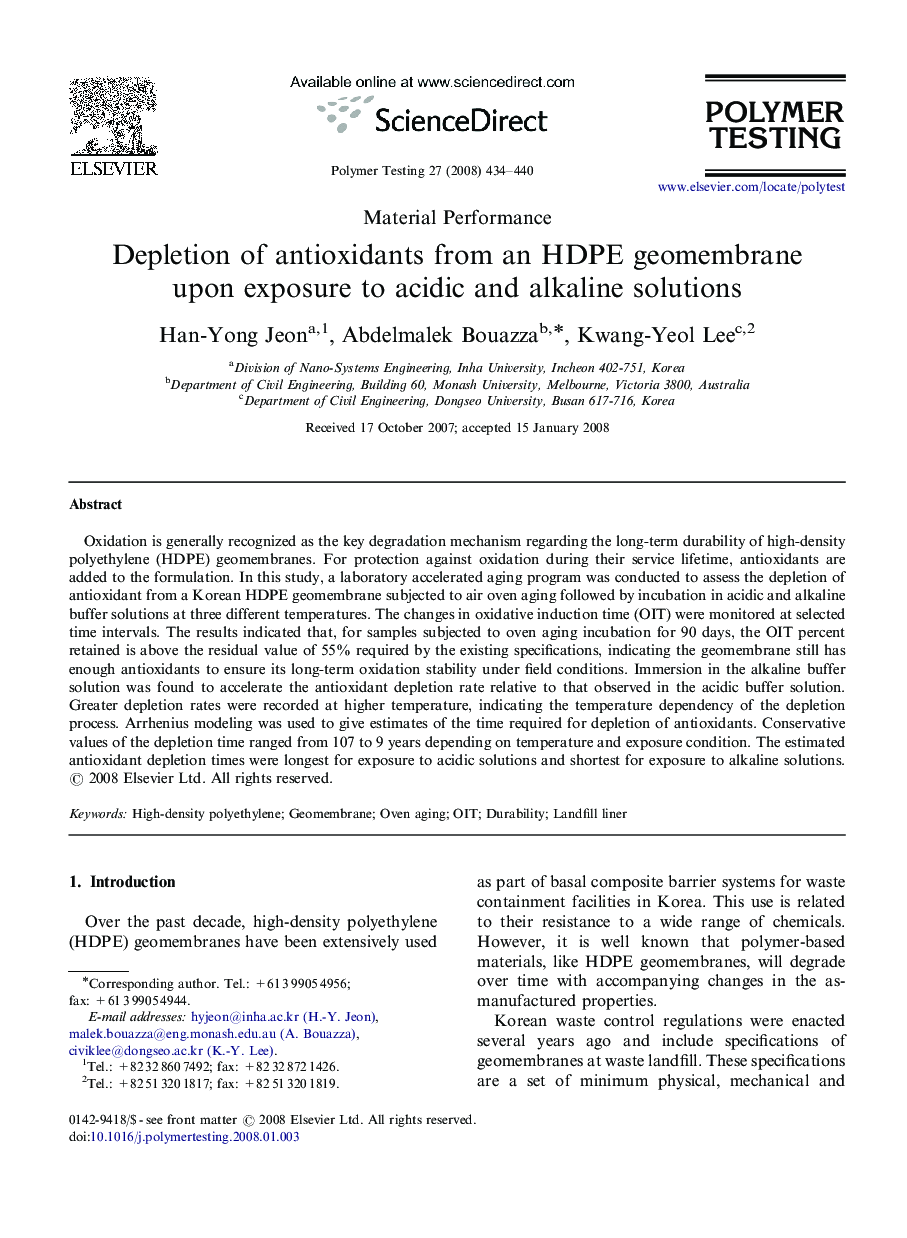| Article ID | Journal | Published Year | Pages | File Type |
|---|---|---|---|---|
| 5207372 | Polymer Testing | 2008 | 7 Pages |
Abstract
Oxidation is generally recognized as the key degradation mechanism regarding the long-term durability of high-density polyethylene (HDPE) geomembranes. For protection against oxidation during their service lifetime, antioxidants are added to the formulation. In this study, a laboratory accelerated aging program was conducted to assess the depletion of antioxidant from a Korean HDPE geomembrane subjected to air oven aging followed by incubation in acidic and alkaline buffer solutions at three different temperatures. The changes in oxidative induction time (OIT) were monitored at selected time intervals. The results indicated that, for samples subjected to oven aging incubation for 90 days, the OIT percent retained is above the residual value of 55% required by the existing specifications, indicating the geomembrane still has enough antioxidants to ensure its long-term oxidation stability under field conditions. Immersion in the alkaline buffer solution was found to accelerate the antioxidant depletion rate relative to that observed in the acidic buffer solution. Greater depletion rates were recorded at higher temperature, indicating the temperature dependency of the depletion process. Arrhenius modeling was used to give estimates of the time required for depletion of antioxidants. Conservative values of the depletion time ranged from 107 to 9 years depending on temperature and exposure condition. The estimated antioxidant depletion times were longest for exposure to acidic solutions and shortest for exposure to alkaline solutions.
Related Topics
Physical Sciences and Engineering
Chemistry
Organic Chemistry
Authors
Han-Yong Jeon, Abdelmalek Bouazza, Kwang-Yeol Lee,
